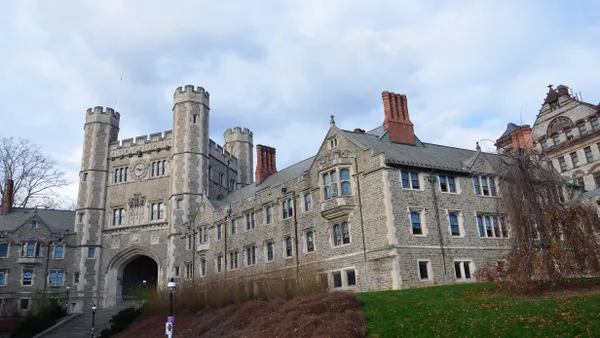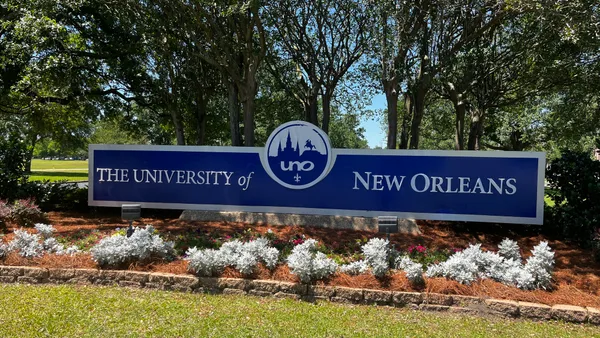Dive Brief:
- The reinstatement of monthly federal student loan payments has been plagued by unprocessed paperwork, unreliable billing statements and long wait times for getting needed information, according to a new report from the Consumer Financial Protection Bureau.
- Student loan servicers are still not back to pre-pandemic staffing levels, leaving many with administrative backlogs, the bureau said. As a result, many borrowers have been left in limbo.
- "If student loan borrowers are unable to successfully enroll in payment plans or obtain accurate information about their accounts, this can have a domino effect on the rest of their financial lives," Rohit Chopra, CFPB's director, said in a statement Friday.
Dive Insight:
In October, the federal government resumed monthly payments for student loan holders for the first time in over three years. Borrowers' balances also began accruing interest again.
But the return to regular loan payments has been choppy.
Almost 24 million borrowers — more than half of the country's federal loan recipients — had their debt transferred during the pandemic loan moratorium, according to CFPB. This means they must navigate a different loan servicer's payment process. Borrowers who graduated from college during the pause and are now making payments for the first time are likewise steering through a new situation.
This would be challenging in the best of circumstances. But CFPB found that many servicers dramatically reduced their staff during the pandemic as a cost-cutting measure. They remain understaffed, despite "the foreseeable borrower demand for help with their loans," the report said.
For example, servicers expected each processor to handle over 1,300 income-driven repayment, or IDR, applications on average, CFPB said. As of late October, more than a third of pending IDR applications had been submitted for over a month without resolution.
Borrowers are also receiving billing statements riddled with mistakes or confusing information, the agency found.
Some servicers calculated borrowers' IDR payments using incorrect income data or used outdated poverty guidelines. Both scenarios can result in higher than necessary monthly payments. Other billing statements include incorrect payment due dates.
"These mistakes can cause significant borrower confusion, and can further strain the servicers’ resources by forcing borrowers to contact their servicer to resolve the errors," the report said.
And when they do, consumers are unlikely to receive prompt assistance, CFPB found.
In October, about half of student loan borrowers seeking assistance via phone ended the call before speaking with a representative, CFPB said. That's up from 17% in August. During that time span, the average call wait time to speak to a live service representative jumped from 12 minutes to over 70 minutes.
"This is leaving borrowers unable to fix errors, get answers to questions, or enroll in an affordable repayment plan or cancellation plan," the report said.















